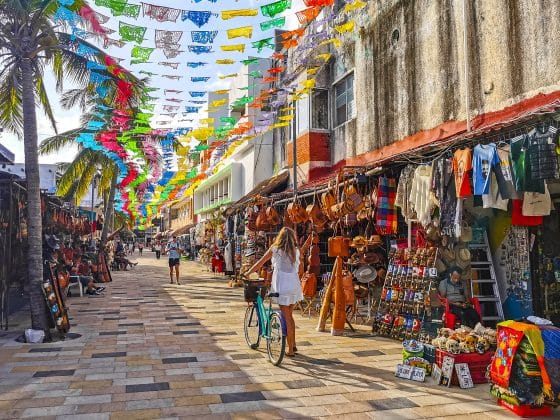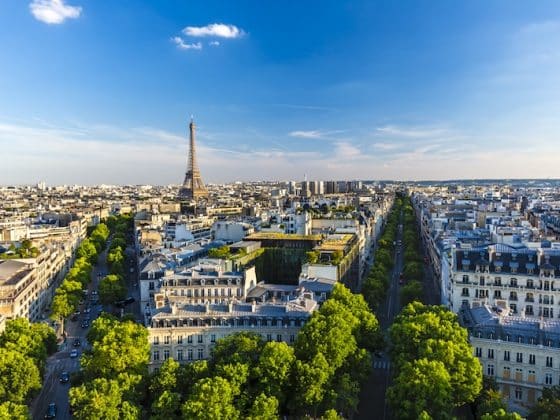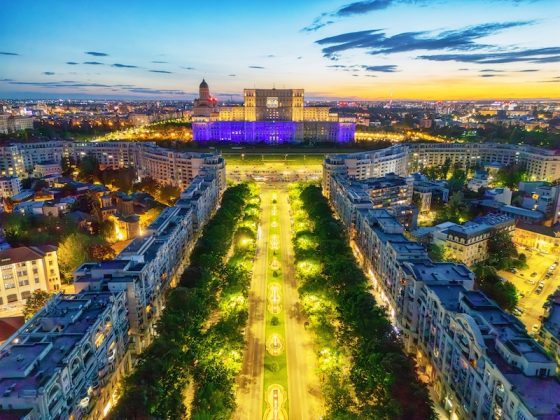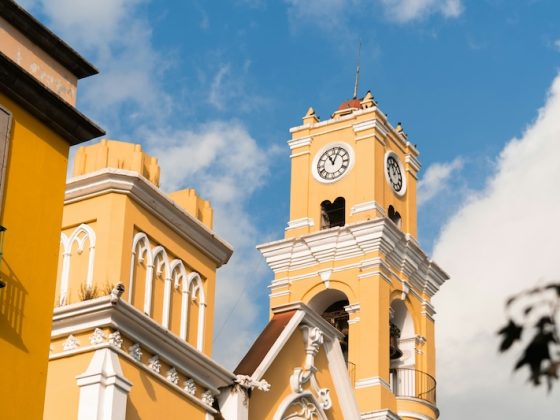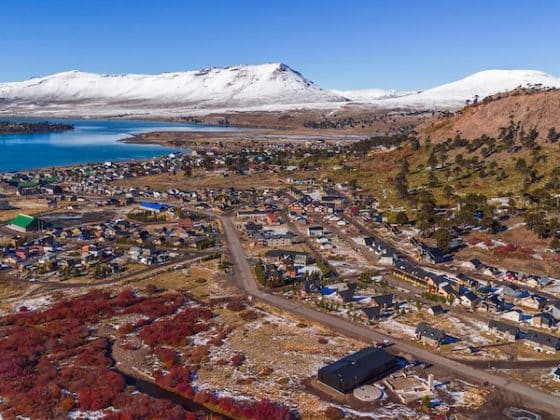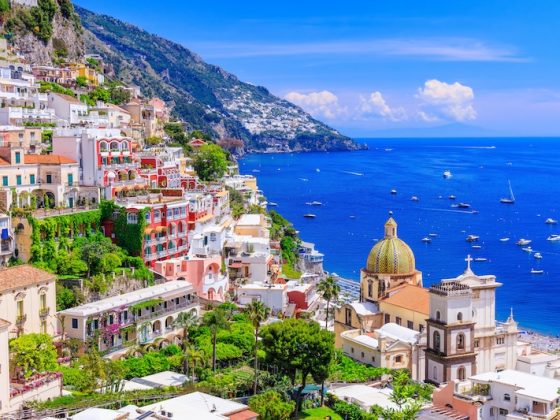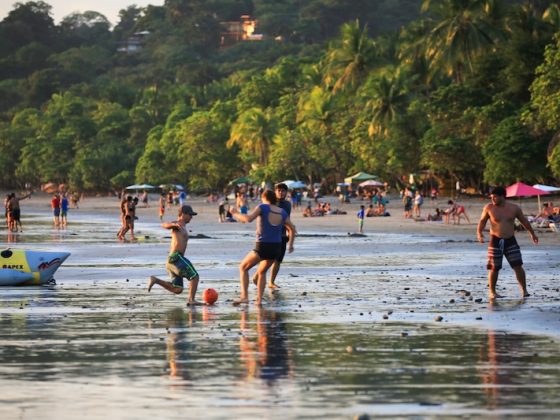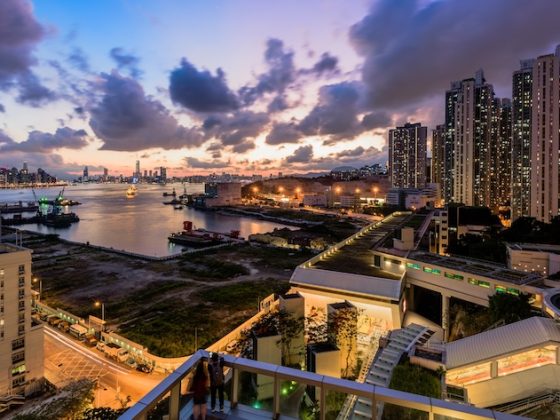Introduction
For many professionals, retirees and digital nomads alike, the idea of Thailand conjures the scent of grilled lemongrass drifting through night markets, the relaxing hush of palm trees at dusk, and the promise of days that feel both lighter and more expansive than home. The imagination jumps straight to warm evenings by the water, affordable comforts and a chance to reset the pace of life in Southeast Asia.
Reality invites a few more layers. Relocating to the Kingdom requires more than a suitcase and a one-way ticket. The move blends postcard beauty with practical groundwork: navigating visas, understanding day-to-day costs, securing the right to work, learning how to join communities that have existed long before the thought of moving crossed your mind. Rhythm shifts too. Time stretches differently in Thailand, guided by monsoon seasons, temple holidays and a gentler sense of urgency.
This guide steps directly into that fuller picture. It looks at every decision an expat meets before the plane door opens. It highlights the small surprises that can transform enthusiasm into confidence. And it shows how to build a life that feels intentional rather than improvised, so the dream of Thailand becomes a place to stand, not only a place to imagine.
Why Thailand Attracts Expats
Affordability and quality of life
Thailand has a long-standing reputation as one of the most cost-effective places to begin a new chapter abroad. Many expats discover that their budget stretches far enough to cover not just essentials but small luxuries that might feel out of reach back home. Studies indicate that overall living expenses can be around 47% lower than in the United States, giving residents the space to enjoy meals out, cleaner services or weekend escapes without anxiety tugging at their wallet.
A recent guide placed the average rent for a one-bedroom apartment in a central neighbourhood at about £365 a month, a sharp contrast to more than £1,000 in UK cities. The difference transforms everyday living: weekday dinners that come fresh from sizzling woks, affordable gyms near leafy parks, and evenings spent in rooftop bars without checking the price twice.
The draw is not only economical. It is about the ease that comes from a place built for convenience. From late-night food stalls to 24-hour pharmacies to island ferries running at dawn, the country supports a lifestyle where moments of enjoyment fit easily between work and obligations. It is like moving your base camp from a wind-beaten ridge to a sheltered hill station. The aspirations remain the same. The strain eases.
Cost matters, but people make a place feel welcoming. Many expats in Thailand mention how quickly a stranger can become part of their routine. A major survey reported that 82% of foreigners rated locals as friendly, and 78% said they felt at home soon after arrival.
Connection finds its way into life early: a neighbour helping translate at the post office, a café owner who remembers your order, a long-term expat offering tips on where to get the best mobile plan. There are language exchanges in Bangkok bars, hiking groups in Chiang Mai’s foothills and beach cleanups that end with volunteers laughing over grilled squid.
Picture stepping into a new city and having someone point you toward the best bowl of khao soi or the co-working space with the strongest cold brew. Those small gestures replace hesitation with confidence. For many expats in Thailand, community becomes the real anchor.
Food culture and daily enjoyment
Thailand’s cuisine plays its own powerful role in the decision to move. Meals feel like small celebrations: basil crackling in woks, fresh herbs piled high in markets, street vendors plating steaming noodles in seconds. With food so central to daily life, eating well requires almost no effort at all.
Access to fruit stands, seafood markets and family-run restaurants encourages healthier choices and a more social lifestyle. Fresh mango in the morning, a curry crafted around local vegetables for lunch, and dinner shared at communal tables create a rhythm of easy pleasure that many expats cherish.
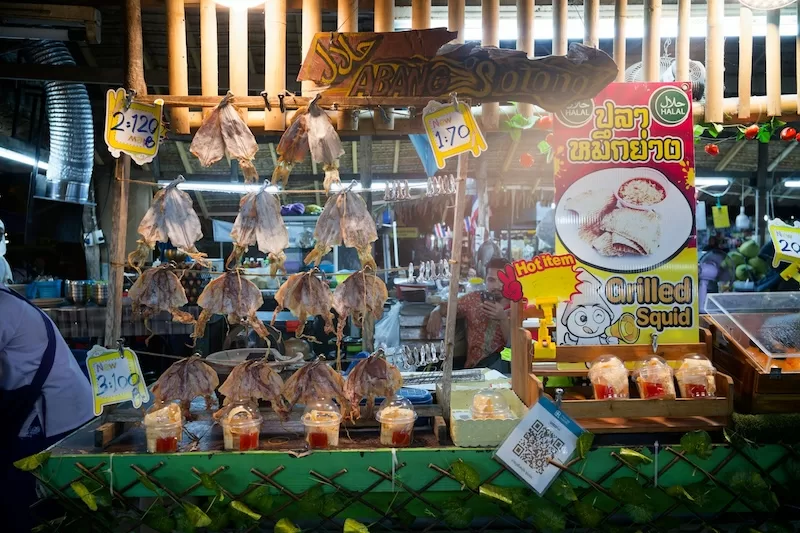
Climate that invites outdoor living
Warm weather, long days of sun and access to beaches, mountains and waterfalls help shift routines outdoors. Instead of snow boots and icy commutes, the year offers evening swims, weekend island trips and morning walks to temples with incense drifting in the air. For expats in Thailand, the climate feels less like an environmental condition and more like an open invitation to move, explore and breathe differently.
Adventure without sacrificing comfort
Thailand balances travel excitement with the security of established infrastructure. High-quality medical facilities, reliable airports, and modern shopping districts sit not far from jungle trails and quiet fishing villages. The blend appeals to people searching for something new without stepping too far away from services they trust.
That overall mix of accessibility, warmth and possibility creates a compelling landing place for expats who want their lives to hold more stories. Thailand invites that change.

Visa and Legal Route Map for Expats in Thailand
Non-immigrant work and business visas
For those planning to work or operate a business in Thailand, the first step is a proper visa and work permit. The Non‑Immigrant B visa is commonly used for employment.
One has to understand that many jobs are off-limits for foreigners under Thai law; many expats gain access via multinational companies or roles requiring their home-country expertise. The message: moving as an expat in Thailand with the expectation you’ll just walk in and find any job will likely lead to frustration. Plan the route before arrival.
Retirement and long-stay options
For expats in Thailand on a slower track (retirement or long-stay living) a variety of visa routes exist. Age-based visas (for example 50+ years) or the newly expanded long-term residency schemes may apply. These are often paired with proof of funds, insurance and residence requirements. Because life as expats in Thailand is often framed as “semi-retired” or “working remotely,” many use the retirement path even if they maintain some income abroad.
Digital nomad and remote work possibilities
Thailand has adapted to remote-worker lifestyles. A recent development is the extended validity of digital-nomad-friendly visas: for example, a change in policy allowed stays up to five years (in segmented periods) for qualifying remote workers. This opens opportunity for expats in Thailand who are location-independent and bring income from abroad. It is, however, still vital to check the exact criteria and tax implications.
Cost of Living and Real-Life Budgeting
Accommodation and utilities
Accommodation accounts for a large portion of monthly expenses. In cities like Bangkok, renting a one-bedroom centrally will cost more; outside core zones it can be significantly lower. For many expats in Thailand, budget apartments start around THB 30,000 (~$800 USD) per month for a decent unit in Chiang Mai or other secondary cities.
Utility costs vary: many buildings are newer, air-conditioned, and electricity can add up if usage is high. In more relaxed towns simpler housing means lower bills.
Food, transport and daily spending
Daily costs for expats in Thailand can be far less than in Western cities. For example, a three-course meal for two people may cost ~£21 (~$26 USD) compared to ~£65 in the UK in one instance. Transport passes, local markets and street-food options help keep costs down. Of course, preference for imported goods, upscale restaurants and imported cars will raise the budget considerably.

Healthcare and insurance
Private healthcare in Thailand is widely used by expats and considered good quality. But coverage and cost vary. The need for health insurance that covers hospital guarantee of payment is often emphasized. Because expats in Thailand may not be part of the national system, budget for quality coverage and reserve for emergencies. In effect the low cost of living doesn’t absolve the need for prudent personal-finance planning.
Working, Careers and Doing Business
Job market realities for expats
While working as an expat in Thailand appeals to many, there are structural constraints. For example, the “Working Abroad Index” showed Thailand ranked fairly low (39th) for expats’ satisfaction with job conditions. Digging deeper: about 42% of expats say the local business culture does not encourage creativity or non-routine thinking (compared with about 26% globally). Additionally, only 45% agree that moving to Thailand improved their career prospects, versus 59% globally.
Positions in education, IT or management are available, but securing a job with visa support is key. As noted earlier, many smaller firms may not sponsor work permits easily. Therefore, relocating as expats in Thailand to “just find a job locally” is risky; stronger outcomes tend to follow when moving with an existing employment contract or location-independent income.
Owning property and starting a business
For many expats in Thailand the idea of starting a business or owning property feels like the next logical step after settling in. But the rules are more restrictive than they first appear.
Under the Foreign Business Act B.E. 2542 (FBA), many business activities are restricted or closed to foreigners unless a special license is obtained. In practical terms: in most standard Thai limited companies the foreign shareholding is capped at 49 % in sectors listed under “List 2” or “List 3” of the FBA, unless licenced otherwise.
Land ownership by foreigners is generally prohibited; this means property ownership requires long-term leases, or ownership of condominium units (subject to the 49% foreign quota in a building).
When starting a business:
- A foreigner must often bring minimum capital (in some cases several million THB) if the business falls under restricted categories.
- Use of nominee shareholders (Thais holding shares on behalf of non-Thai persons) is technically illegal and can bring serious penalties.
- Even for allowed businesses, visa-work-permit compliance remains essential; operations must align with what the permit and company structure permit.
Many expats in Thailand therefore choose one of these routes:
- Running an online or consultancy business from Thailand but with income derived abroad (which reduces entanglement in Thai labour law and local sponsorship).
- Joining a Thai-registered company as a foreign employee through an employer who handles the work permit and compliance.
- If keen on entrepreneurship, engaging a Thai partner, or locating the business under the jurisdiction of the Thailand Board of Investment (BOI) which offers certain relaxed rules for promoted industries.
In short: the allure of starting fresh with a business in Thailand is real, but the map is full of detours. Legal structure, ownership quotas, and permit compliance matter more than the optimism that often precedes relocation.
Settling In: Culture, Language and Logistics
Getting around, living in Thai cities
Daily life for expats in Thailand begins with small adaptations. In Bangkok, mornings often start by checking the sky for storms or planning routes around traffic that can feel like its own ecosystem. The BTS and MRT carve efficient lines through the city’s busiest corridors, turning long distances into manageable commutes. Street crossings demand attention, motorbikes weave like schools of fish, and shortcuts appear in the form of hidden canals and narrow alleys lined with fruit vendors.

In Chiang Mai, streets slow down noticeably. Bicycles and scooters serve more than convenience; they become extensions of personal freedom. Old town moats and temple spires act as landmarks, and the air smells faintly of incense after sunset.
Living by the coast tells a different story. Songthaews drift between beaches and small towns, schedules driven more by movement of people than posted timetables. Rainy seasons leave puddles shining like mirrors, and distances compress once the beach becomes the heart of your map.
Finding a home follows similar patterns:
- New condos near transit in urban centres
- Houses behind gates in leafy suburbs
- Compact apartments above family-run shops in heritage neighbourhoods
Choosing a location becomes a declaration of how you want your days to feel: efficient and connected, or quiet and neighbourly. Cost matters, yet the texture of the surroundings may matter more.
Language: small words that make life smoother
English surfaces more frequently in tourist zones and younger circles, yet Thai remains essential to deeper integration. Even a few phrases can open doors: a warm smile paired with khob khun ka/krub softens interactions and shows respect.
Learning basic Thai helps with:
- Market shopping
- Taxis and motorbike taxis
- Reading simple signs
- Building trust with neighbours
Progress happens in stages. First survival words, then small talk with the barista who knows your go-to iced coffee, then finally catching jokes that once zipped overhead. The effort signals something important: a wish to belong, not just observe.
Daily comfort: shops, services and small routines
Thailand supports a lifestyle built on convenience:
- 7-Elevens glow at almost every corner, stocked with snacks, phone top-up cards and ready-made meals
- Pharmacies provide quick remedies with friendly guidance
- Laundromats working late into the night
Food is easy. Grocery stores offer imported products for comfort days, while markets supply vegetables still crisp from morning fields. Real life forms in between these stops: stumbling upon a neighbourhood vendor who deep-fries banana fritters at the perfect temperature or learning which café opens early enough for your timeline.

Friendliness forms a bridge, yet subtle cultural rules shape how expats in Thailand navigate relationships. Respect for the monarchy and religion sits at the centre of society, and public behaviour follows that tone. Loud confrontation is avoided. Politeness is protection. Freedom of expression may feel narrower to those arriving from places with strong cultures of public debate.
Culture shock tends to unfold quietly:
- The first time a document requires several signatures and copies
- The realisation that time moves by relationships more than strict schedules
- Learning that “yes” might mean “yes,” “maybe,” or “I don’t want to disappoint you”
Building community softens that adjustment. Language exchanges in tucked-away cafés, cycling groups that explore city edges, workshops in Thai cooking or Muay Thai, and expat forums that celebrate small victories all help turn the unfamiliar into ritual.
A place becomes home when people call your name across a market stall, when the fruit vendor knows you like pineapple cut into bite-size pieces, when the security guard nods because he remembers you came home late last night.
Adapting to climate and seasons
The tropical climate encourages life outdoors, but it asks for flexibility. Monsoon rains can drench entire blocks within minutes, leaving streets transformed into rivers. Dry season, by contrast, brings warm evenings ideal for night markets and rooftop views.
In central cities, air quality occasionally dips during certain months, prompting expats to monitor forecasts and plan around bad days. By the coast, sea breezes clear the air, though humidity wraps itself around every routine.
Weather does not stand separate from life. It sets the soundtrack: thunderstorms rolling over the skyline, cicadas buzzing in late afternoon, the silence that envelops everything right before rain arrives.
Read More Like This: Top 10 Things to Know if You’re Moving to Thailand
Top Destinations for Expats in Thailand
Thailand offers multiple versions of a good life, each suited to different priorities. Choosing the right home base shapes everything: work opportunities, social circles, cost of living and even how days feel.
Bangkok and surrounding areas
Best for: professionals, international families, career-driven expats
Bangkok is the country’s international engine. Major companies, embassies, global hospitals and leading universities concentrate here. Public transport (BTS, MRT and airport rail links) allows movement through a city that would otherwise feel unmanageable. Skyscrapers rise beside temples. Rooftop bars sit not far from street vendors cooking late into the night.
Living here means access to:
- High-paying jobs and corporate networks
- International schools with global curriculums
- World-class private healthcare
- Endless dining and nightlife options
But the city is dense and energized from dawn until well after midnight. Rent climbs quickly near transit lines, and traffic can stretch patience. For expats who thrive on stimulation and ambition, it may feel like the obvious launchpad.

Chiang Mai
Best for: digital nomads, creatives, and expats craving more calm in their lives
Set against a backdrop of jungled mountains, Chiang Mai invites a way of living built around balance. Cafés double as co-working hubs, artisan markets line old streets, and weekends are all about hikes, waterfall trips or temple visits.
Why expats settle here:
- Affordable housing in walkable neighbourhoods
- Strong remote-work infrastructure
- Tight-knit expat communities
- Cooler temperatures than the coast
It holds the spirit of a university town with ancient heritage woven through its daily life. The trade-off: fewer high-level jobs for corporate career climbers.

Phuket and Andaman Coast
Best for: ocean lovers, hospitality workers, semi-retirees with beach priorities
Phuket offers tropical landscapes with modern comforts. Blue water and resort living shape routines here: mornings swimming, evenings at seafood restaurants by the shore. Living near the sea can turn ordinary weekdays into something memorable.
Advantages include:
- International airport with global flight connections
- Tourism-driven economic opportunities
- High-quality accommodation and private hospitals
But tourism inflates prices and the pace rises in peak season. Those who enjoy social life, fitness and water sports find the lifestyle deeply rewarding.
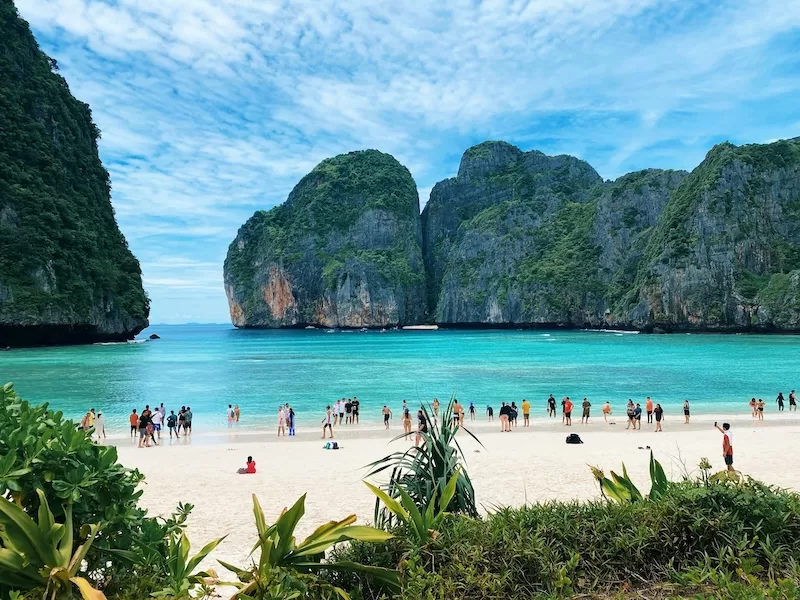
Pattaya and the Eastern Economic Corridor
Best for: budget-conscious expats wanting a city-style life close to Bangkok
Only an hour or two from the capital, Pattaya pairs beach access with ease of travel to Bangkok for work or international flights. The city has matured beyond its old party reputation. Neighbouring Chonburi and Rayong benefit from major industrial investment, creating jobs for engineers, logistics specialists and tech workers.
What stands out:
- Lower rent than Bangkok
- Modern condos, shopping centres and golf courses
- Strong transportation links
A lively social scene remains part of its identity, which can be a draw or a drawback depending on personality.

Hua Hin
Best for: retirees and families looking for calm coastal living
Hua Hin delivers quiet beaches, low-rise neighbourhoods and family-friendly routines. Royal influence helped shape its development into a comfortable seaside retreat.
Essentials for daily life are close by:
- Quality private hospitals
- International school options
- Relaxed yet organized infrastructure
Nights are quieter than in tourist hotspots which many see as an advantage.

Isaan and the Northeastern Provinces
Best for: cultural immersion and deeper community connection
The northeastern region (places like Udon Thani, Khon Kaen and Nakhon Ratchasima) attracts expats who want proximity to authentic rural life and lower living costs. Here, neighbours often become extended family, and markets reflect local agriculture more than tourism demand.
This path offers:
- Strong cultural ties and social belonging
- Very affordable lifestyle
- Laidback living with space to breathe
The trade-off is fewer Western conveniences and limited job prospects outside teaching or remote work.
Koh Samui, Koh Phangan and Gulf Islands
Best for: expats prioritizing wellness, nature and community-driven life
Island living in the Gulf has a different beat: morning yoga near the sea, scooters cutting through coconut groves, weekly markets under bright strings of light. Remote workers and wellness professionals gather in communities that feel transient yet supportive.
Services vary by island, but the reward is waking up with the ocean nearby every day.
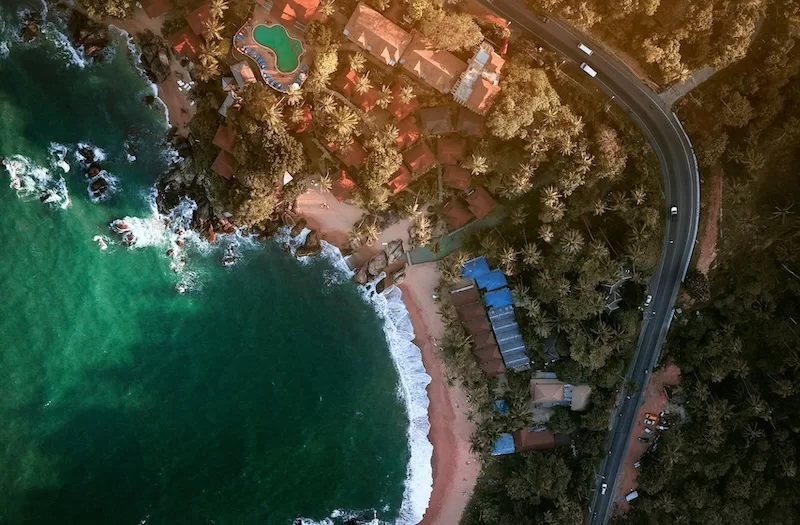
A landscape of choices
Each destination carries its own energy:
- Bangkok fuels ambition
- Chiang Mai encourages balance
- Phuket and islands nourish a love for sun and sea
- Pattaya and the east connect convenience with affordability
- Hua Hin nurtures calm family life
- Isaan delivers depth and authenticity
Deciding where to live as expats in Thailand becomes less about picking a point on a map and more about choosing the kind of person you want to be each morning.
Read More Like This: Thailand Apartments for Rent: Prices, Best Cities, and Tips
Potential Challenges and How to Plan for Them
Every destination has a learning curve. The challenges expats in Thailand encounter are rarely dramatic, but they reveal themselves in everyday tasks and long-term planning. Preparing for them early helps keep the adventure enjoyable.
Legal and administrative systems
Relocating as expats in Thailand calls for steady attention to paperwork. Visa renewals require careful timing. Some banks ask for employment documents or proof of residency. Tax rules differ for income earned abroad versus income earned locally.
These are not roadblocks, only systems that demand respect.
How to handle it calmly:
- Keep a digital folder of passport scans, visa stamps, leases and insurance documents
- Work with a reputable visa or immigration consultant when rules feel unclear
- Track renewal dates in a shared calendar
- Speak with a tax professional to avoid surprises
Success here is not about perfection. It is about staying one step ahead of deadlines.
Language barriers in everyday life
Many expats in Thailand find that English takes them far enough in major cities, though Thai remains the language of nuance. Ordering food becomes smoother with a few phrases. Negotiations with landlords or utility providers rely on pointing, patience and sometimes translation apps.
Learning Thai creates trust and unlocks warmth that might otherwise stay politely distant.
Ways to build comfort:
- Start with friendly greetings and numbers for market shopping
- Practice simple phrases daily with neighbours or shopkeepers
- Join a Thai class or language exchange group for consistency
- Celebrate small progress, like understanding a joke
Language does not need to be flawless to show goodwill.
Adjusting to cultural expectations
Thai society values harmony. Open arguments are rare. Respect toward monarchy and religion shapes public life. It may take time for newcomers to sense where boundaries sit.
Culture shock often appears quietly: a misunderstanding at a government office, or confusion when someone says “yes” but means “not right now.”
Practical mindset shifts:
- Observe before reacting in group settings
- Ask questions with curiosity instead of confrontation
- Remember that a smile can resolve small tensions faster than assertive language
Rather than surrendering identity, adapting to new social rules is just learning the moves of a different dance.
Healthcare, insurance and aging abroad
Thailand’s healthcare system is strong, especially in cities with major private hospitals. Yet living abroad means planning for unexpected moments. Insurance policies differ by visa type, hospital admission rules and age. For retirees and long-term residents, a clear medical plan prevents stress later.
Healthy planning tips:
- Maintain comprehensive health insurance from day one
- Identify a trusted local clinic or primary care physician
- Keep emergency funds available for large procedures
- Know how to get prescriptions refilled while abroad
Financial planning and money movement
Foreign currency income brings advantages but also exchange-rate risk. Some expats rely too heavily on ATMs or money transfers that build fees quickly. Others invest or enter leases without understanding local financial structures.
Smart strategies:
- Compare banks for best international transfer policies
- Build savings in both your home currency and Thai baht
- Review long-term leases or large purchases with a lawyer
- Avoid informal borrowing or lending arrangements
Exit strategy and staying flexible
No one can predict the future. Some expats in Thailand stay for decades, plant gardens and raise families. Others discover new opportunities and shift to another chapter. The wisest approach sits somewhere between: enjoy the present while preparing for change.
Think of it as a long voyage on open water. You set the course, stock the supplies and learn how to navigate whatever weather comes.
Stability through flexibility:
- Keep home-country documents active and updated
- Maintain strong links with financial institutions abroad
- Review visa category annually in case rules evolve
- Lease rather than buy until deeply familiar with the market
Planning an exit does not mean shortening the experience, but it is vital to securing peace of mind so you can enjoy it more fully.
FAQs
Q1: Can a foreigner live in Thailand long term without working?
Yes. With the right visa category, such as retirement or other long-stay options, a foreigner can live as an expat in Thailand without local employment. Proof of funds, valid health insurance and regular renewals are typically required.
Q2: How much does a typical expat spend per month in Thailand?
Budgets vary by city and lifestyle. In secondary cities, daily life can often be comfortable on around $800–1,200 USD per month. In Bangkok or resort destinations, costs rise due to housing and imported goods.

Q3: Is the official language Thai? Will I need to learn it?
Yes, Thai is the official language. English helps in cities and tourist areas, but learning even basic Thai improves service experiences, builds friendships and shows cultural respect.
Q4: Can a foreigner buy land in Thailand?
Direct land ownership is very restricted. Many expats purchase condominiums under the foreign-ownership quota or secure long-term lease arrangements when living in houses.
Q5: Is Thailand safe and suitable for families?
Many families thrive in Thailand. Access to international schools, strong private healthcare options and community-oriented neighbourhoods make settling in easier. Researching schools and areas in advance helps ensure the right fit.
Q6: Can a foreigner work in Thailand without a work permit?
No. A proper work permit is necessary to perform any job legally in Thailand. Even volunteer roles may require permission, depending on the activity. Working without a permit risks fines or deportation.
Q7: What are the main jobs available to expats in Thailand?
Teaching English continues to be common. Expats with specialized skills may find roles in technology, hospitality management or international business. Remote careers are increasingly popular for those who wish to live in Thailand while earning abroad.
Q8: How easy is it to make friends and build community?
Thailand offers many social entry points: hobby groups, language exchanges, sports clubs and coworking spaces. Expats often say that meaningful friendships begin not in grand gestures but in shared meals and everyday routines.
Q9: Will I need health insurance in Thailand?
Yes. Health insurance is highly recommended and may be required depending on visa type. Private hospitals provide excellent care, but costs without insurance can be significant.
Next Steps
Life in Thailand often begins as a daydream. A beach breeze, a hopeful search online, maybe a friend’s glowing message from Chiang Mai or Phuket. With the right preparation, that spark becomes reality. The Kingdom rewards those who arrive ready: visa secured, finances planned, and a city chosen for the life it encourages rather than the one imagined from afar.
The first few weeks set the tone. A walk to the market where you recognize two faces. A transit card that rides the skytrain without confusion. A café that knows how you take your iced coffee. Routines form faster when the foundation is strong.
If Thailand feels like the place where your next chapter begins, this is the right moment to move from research to action. Subscribe to our newsletter and stay ahead of visa adjustments, community insights and practical tips that help every decision land on solid ground. You will also discover other remarkable destinations around the world that offer fresh opportunities and lifestyles waiting to be explored. Each update keeps you informed, inspired and ready for the day your one-way ticket becomes real.
Your new home is no longer an idea floating on the horizon. It’s a destination you can begin building today.
Contact Author
"*" indicates required fields
Stay Ahead on Every Adventure!
Stay updated with the World News on Escape Artist. Get all the travel news, international destinations, expat living, moving abroad, Lifestyle Tips, and digital nomad opportunities. Your next journey starts here—don’t miss a moment! Subscribe Now!

